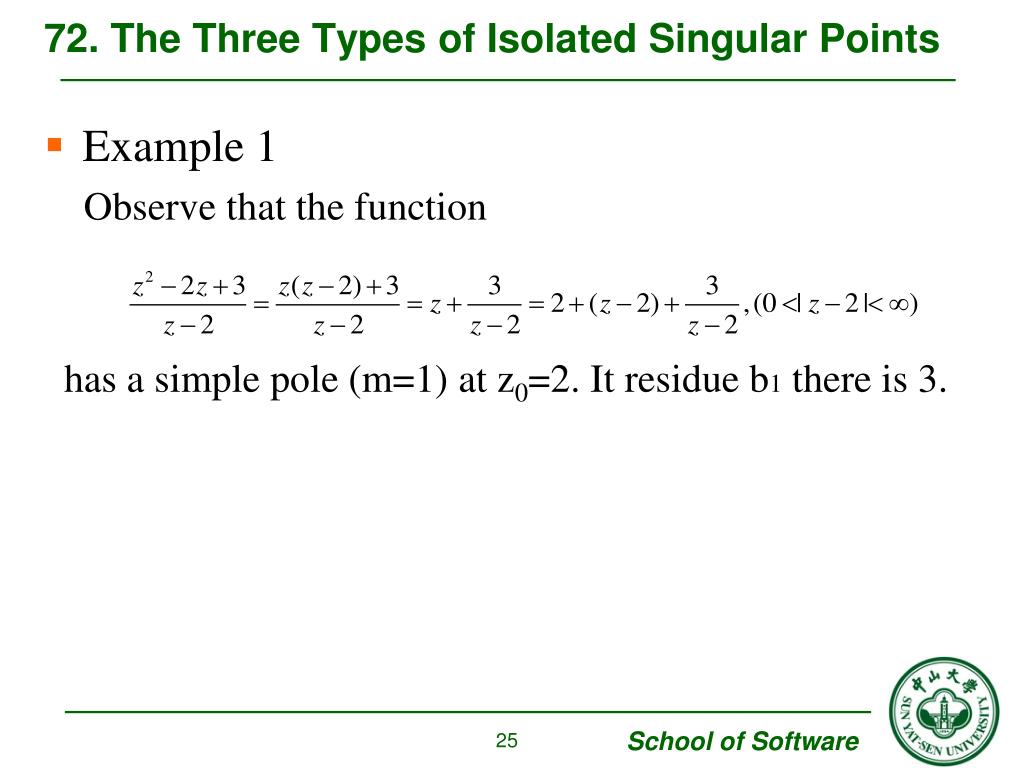Here is a persuasive advertisement for ghostwriting services for the topic of residue theory in complex analysis:
**Unlock the Secrets of Residue Theory with Our Expert Ghostwriting Services**
Are you struggling to grasp the complex concepts of residue theory in complex analysis? Do you need help with calculating residues and understanding simple poles? Look no further!
Our team of experienced ghostwriters specializes in crafting high-quality, plagiarism-free content for students like you. With our expertise, you’ll receive:
**Accurate and detailed explanations** of residue theory formulas and concepts
**Well-structured and organized essays** that meet your academic requirements
**Original examples and illustrations** to help you understand complex ideas
**Timely delivery** to ensure you meet your deadlines
Our ghostwriting services offer:
**Personalized support** from experienced writers with a strong background in complex analysis
**Confidentiality and discretion** guaranteed
**Unlimited revisions** to ensure you’re completely satisfied with the final product
Don’t let residue theory hold you back from achieving academic success. Trust our expert ghostwriters to help you excel in complex analysis. Order now and get:
**High-quality content** that meets your academic standards
**More free time** to focus on other important aspects of your life
**Peace of mind** knowing that your work is in good hands
Contact us today to learn more about our ghostwriting services and take the first step towards academic success!
\[b_{1}=\operatorname{Res}(f(z),a)=\frac{1}{(k-1)!}\lim_{z\to a}\left[\frac{d^{ k-1}}{dz^{k-1}}[(z-a)^{k}f(z)]\right].\qed\]
**Remark 79**.: Let \(f(z)=\frac{g(z)}{h(z)}\) where \(g\) and \(h\) are holomorphic at \(z=a\). Furthermore, suppose \(g(a)\neq 0\) and \(h(a)=0\), but \(h^{\prime}(a)\neq 0\) ( in such case we say \(h\) has a zero of order \(1\) at \(a\)). Then \(f\) has a simple pole at \(z=a\), and
\[\operatorname{Res}(f(z),a)=\frac{g(a)}{h^{\prime}(a)}.\]
This easy way of finding residues for such functions \(f(z)=\frac{g(z)}{h(z)}\) follows from the fact that
\[\operatorname{Res}(f(z),a)=\lim_{z\to a}(z-a)\frac{g(z)}{h(z)}=\lim_{z\to a} \frac{g(z)}{\frac{h(z)}{z-a}}=\frac{g(a)}{h^{\prime}(a)}.\]
**Example 116**.:
1. \(f(z)=\frac{1}{1+z^{2}}=\frac{1}{(z+i)(z-i)}\) has simple poles at \(z=i\) and \(z=-i\). Find the residues there. _Solution._ To find the residues, we calculate \[\operatorname{Res}(f(z),i)=\lim_{z\to i}(z-i)f(z)=\lim_{z\to i}(z-i)\frac{1}{( z+i)(z-i)}=\frac{1}{2i}.\] and \[\operatorname{Res}(f(z),-i)=\lim_{z\to-i}(z+i)f(z)=\lim_{z\to-i}(z+i)\frac{1}{( z+i)(z-i)}=-\frac{1}{2i}.\] The residues at \(z=i\) and \(z=-i\) are \(\frac{1}{2i}\) and \(-\frac{1}{2i}\), respectively.
* \(f(z)=\frac{e^{z}}{z^{3}}\) has a pole of order \(3\) at \(z=0\) since \(\lim_{z\to 0}z^{3}\cdot\frac{e^{z}}{z^{3}}=1\neq 0\). Find the residues at the pole. _Solution._ To find the residue, we calculate \[\text{Res}(f(z),0)=\frac{1}{2!}\lim_{z\to 0}\left[\frac{d^{2}}{dz^{2}}(z-0)^{3}f(z) \right]=\frac{1}{2!}\lim_{z\to 0}\left[\frac{d^{2}}{dz^{2}}z^{3}\cdot\frac{e^{z}}{z^{3}} \right]=\frac{1}{2}.\] Thus the residue of the pole at \(z=0\) is \(\frac{1}{2}\).
* Calculate the residues of the function \(f(z)=\frac{\sin z}{(z-i)(z+2)^{2}}\) at its singularities. _Solution._ Observe that \(z=i\) and \(z=-2\) are singularities for \(f(z)\), and that \(z=i\) is a simple pole while \(z=-2\) is a pole of order \(2\). Therefore, \[\text{Res}(f(z),i)=\lim_{z\to i}(z-i)\frac{\sin z}{(z-i)(z+2)^{2}}=\frac{\sin i }{(i+2)^{2}}\] and \[\text{Res}(f(z),-2)=\lim_{z\to-2}\frac{d}{dz}\left[(z+2)^{2} \frac{\sin z}{(z-i)(z+2)^{2}}\right]=\lim_{z\to-2}\frac{d}{dz}\left[\frac{\sin z }{(z-i)}\right]\] \[=\lim_{z\to-2}\frac{(z-i)\cos z-\sin z}{(z-i)^{2}}=\frac{(-2-i) \cos(2)+\sin(2)}{3+4i}.\]
* The function \(f(z)=\frac{\sin z-z}{z^{4}}\) has a pole at \(z=0\), but the order of this pole is not immediately evident. However, if we write \(\sin z-z=-\frac{z^{3}}{3!}+\frac{z^{5}}{5!}-\cdots\) then \[f(z)=\frac{-\frac{z^{3}}{3!}+\frac{z^{5}}{5!}-\cdots}{z^{4}}=-\frac{1}{3!z}+ \frac{z}{5!}-\cdots.\] Thus we have that \(\text{Res}(f(z),0)=-\frac{1}{3!}=-\frac{1}{6}\).
### Cauchy’s Residue Theorem
**Theorem 148**.: _Let \(f\) be holomorphic inside and on a positively oriented contour except for a finite number of poles \(a_{1},a_{2},\ldots,a_{n}\) inside \(\gamma\) (Figure 3.42). Then_
Proof
: Consider the Laurent expansion at \(a_{k}\):
\[f(z)=\underbrace{\frac{b_{m}}{(z-a_{k})^{m}}+\cdots+\frac{b_{1}}{(z-a_{k})^{m}}}_{ \text{Call this part $f_{k}(z)$}}+\sum_{n=0}^{\infty}a_{n}(z-a_{k})^{n}.\]
Define a function \(g:=f(z)-\sum_{k=1}^{N}f_{k}(z)\). Then \(g(z)\) has only removable singularities at \(a_{1},a_{2},\ldots,a_{N}.\) Remove them and use Cauchy’s theorem to deduce that \(\int_{\gamma}g(z)dz=0\). But
\[\int_{\gamma}g(z)dz=\int_{\gamma}f(z)dz-\sum_{k=1}^{N}\int_{\gamma}f_{k}(z)dz=0.\]
Hence,
\[\int_{\gamma}f(z)dz=\sum_{k=1}^{N}\int_{\gamma}f_{k}(z)\,dz.\]
Note that the integral around a pole can be found easily using the fundamental integral and we have
\[\int_{\gamma}f_{k}(z)dz=2\pi i\text{Res}(f(z),a_{k})\]
(see Exercise 17 below). Therefore,
\[\int_{\gamma}f(z)dz=2\pi i\sum_{k=1}^{N}\text{Res}(f(z),a_{k}).\qed\]
Figure 3.42: \(f\) is not holomorphic for finite number of poles \(a_{1},a_{2},a_{3},a_{4}\) in \(\gamma\)
[MISSING_PAGE_EMPTY:703]
Only \(z_{1}\) and \(z_{2}\) are inside the given contour. Therefore,
\[\int_{\gamma}\frac{dz}{1+z^{4}}=2\pi i\left[\mathrm{Res}(f(z),z_{1})+\mathrm{Res} (f(z),z_{2})\right].\]
Now
\[\mathrm{Res}(f(z),z_{1})=\lim_{z\to e^{i\pi/4}}\frac{z-e^{\pi/4}}{1+z^{4}}= \lim_{z\to e^{i\pi/4}}\frac{1}{4z^{3}}=\frac{1}{4}e^{-3\pi i/4}\quad\text{and}\]
\[\mathrm{Res}(f(z),z_{2})=\lim_{z\to e^{3\pi i/4}}\frac{z-e^{3\pi i/4}}{1+z^{4} }=\lim_{z\to e^{3\pi i/4}}\frac{1}{4z^{3}}=\frac{1}{4}e^{-\pi i/4}.\]
Therefore
\[\int_{\gamma}\frac{dz}{1+z^{4}}=2\pi i\left[\frac{1}{4}e^{-3\pi i/4}+\frac{1}{ 4}e^{-\pi i/4}\right]=\frac{\pi}{\sqrt{2}}.\]
**Example 3.** Use Cauchy’s Residue Theorem to evaluate the following real trigonometric integral
\[\int_{0}^{2\pi}\frac{\sin^{2}(\theta)}{5+4\cos(\theta)}d\theta.\]
_Solution:_ First we establish the identification
\[z=e^{i\theta}\quad 0\leq\theta\leq 2\pi.\]
With this choice of identification, we have that \(\frac{1}{z}=e^{-i\theta}\). Since
\[\cos\theta=\frac{e^{i\theta}+e^{-i\theta}}{2}=\frac{z+\frac{1}{z}}{2}\quad \text{and}\quad\sin\theta=\frac{e^{i\theta-e^{-i\theta}}}{2i}=\frac{z-\frac{1} {z}}{2i},\]
we have that
\[\cos\theta=\frac{1}{2}\left(z+\frac{1}{z}\right)\quad\text{and}\qquad\sin \theta=\frac{1}{2i}\left(z-\frac{1}{z}\right).\]
Furthermore, when integrating along \(\gamma\),
\[z=e^{i\theta}\implies dz=izd\theta\implies\frac{dz}{iz}=d\theta.\]
Secondly, observe that \(5+4\cos\theta\) is never zero. Thus the integrand is finite over \([0,2\pi]\). Performing the above substitutions leads to
\[\int_{0}^{2\pi}\frac{\sin^{2}\theta}{5+4\cos\theta}d\theta=\int_{\gamma}\frac {\left[\frac{1}{2i}\left(z-\frac{1}{z}\right)\right]^{2}}{5+4\cdot\frac{1}{2} \left(z+\frac{1}{z}\right)}\frac{dz}{iz},\]
which can be reduced to \[-\frac{1}{4i}\int_{\gamma}\frac{(z^{2}-1)^{2}}{z^{2}(2z^{2}+5z+2)}dz=-\frac{1}{4i} \int_{\gamma}\frac{(z^{2}-1)^{2}}{2z^{2}\left(z+\frac{1}{2}\right)(z+2)}dz.\]
Let \(g(z)=\frac{(z^{2}-1)^{2}}{2z^{2}\left(z+\frac{1}{2}\right)(z+2)}\). Observe that \(g(z)\) has simple poles at \(z=-\frac{1}{2}\), \(z=-2\) and a pole of order \(2\) at \(z=0\). However, only \(-\frac{1}{2}\) and \(0\) lie inside the unit circle \(\gamma\), so that
\[\int_{0}^{2\pi}\frac{\sin^{2}\theta}{5+4\cos\theta}d\theta=-\frac{1}{4i}\cdot 2 \pi i\left[\operatorname{Res}(g(z),-\frac{1}{2})+\operatorname{Res}(g(z),0) \right].\]
Now we calculate the residues as follows:
\[\operatorname{Res}\left(g(z),-\frac{1}{2}\right)=\lim_{z\to\frac{1}{2}}[(z+ \frac{1}{2})\cdot g(z)]=\lim_{z\to-\frac{1}{2}}\frac{(z^{2}-1)^{2}}{2z^{2}(z+ 2)}=\frac{3}{4}\]
and
\[\operatorname{Res}\left(g(z),0\right)=\lim_{z\to 0}\frac{1}{1!}\frac{d}{dz}[z^{2}g(z)]= \lim_{z\to 0}\frac{d}{dz}\left[\frac{(z-1)^{2}}{2z^{2}+5z+2}\right]\] \[=\lim_{z\to 0}\frac{(2z^{2}+5z+2)\cdot 2(z^{2}-1)2z-(z-1)^{2}(4z+5)} {(2z^{2}+5z+2)^{2}}=-\frac{5}{4}.\]
Hence,
\[\int_{0}^{2\pi}\frac{\sin^{2}\theta}{5+4\cos\theta}d\theta=-\frac{1}{4i}\cdot 2 \pi i\left[\frac{3}{4}-\frac{5}{4}\right]=\frac{\pi}{4}.\]
### Exercises

发表回复